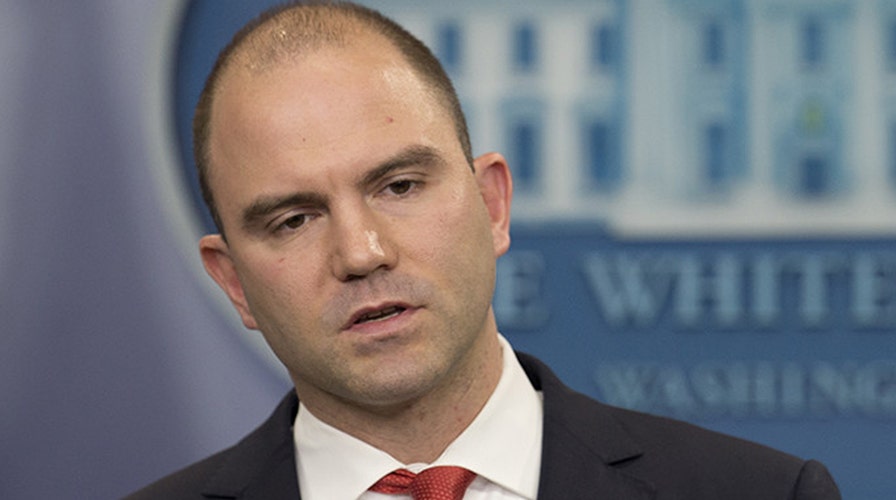Rhodes: Media echoed White House talking points on Iran deal
Reaction from Howard Kurtz, Fox News media analyst and host of 'MediaBuzz'
In a stunningly blunt interview, top Obama adviser Ben Rhodes asserted that the administration’s foreign policy team built an “echo chamber” of experts to help sell the controversial Iran nuclear deal.
Deputy National Security Adviser Ben Rhodes made the comments as part of an extensive profile in The New York Times Magazine. The article detailed how Rhodes’ “war room” worked to influence Capitol Hill lawmakers and reporters as the details of the Iranian nuclear deal were being hammered out in negotiations.
“We created an echo chamber,” Rhodes said, when asked about arms-control experts that appeared at think tanks and were then used as sources for hundreds of reporters – whom the article described as “clueless.”
Of those experts, Rhodes said: “They were saying things that validated what we had given them to say.”
According to the article, Rhodes used groups like The Iran Project to help promote the nuclear deal, but also pushed back on the notion that they misled anybody.
Asked about Rhodes’ comments on Friday, White House Press Secretary Josh Earnest said the administration is proud of the “strong” and “principled” case made for the international agreement with Iran.
The “echo chamber” remark was one of several revealing moments in the article.
According to the piece, Rhodes also tried this past January to keep Iran’s capture of American sailors out of the news until after President Obama’s State of the Union address.
“They can’t keep a secret for two hours,” Rhodes was quoted saying – the news ended up breaking before the president’s address that night.
Asked about those comments on Thursday, Earnest told reporters “it is easier to resolve situations like this when they aren’t subject to intense media scrutiny. … I'm sure that was a factor in this situation.” He said anybody also would have realized “it was not going to stay secret for long, and that that certainly was true in this instance.”
Rhodes, meanwhile, took a shot in the article at the modern media landscape, lamenting the closure of many newspapers’ foreign bureaus and the level of experience of many political reporters.
“Most of the outlets are reporting on world events from Washington. The average reporter we talk to is 27 years old, and their only reporting experience consists of being around political campaigns. That’s a sea change. They literally know nothing,” he said.











































